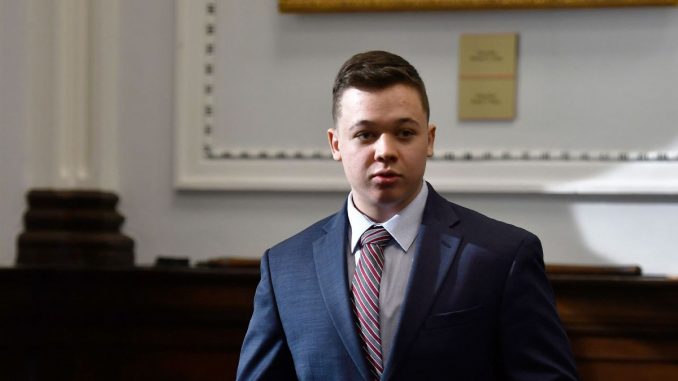
By Serin Sarsour
During a police brutality protest last summer in Kenosha, Wisconsin, Kyle Rittenhouse shot three men, killing two and injuring another. He was recently declared not guilty on Nov. 19. As the news traveled to Brooklyn College, many students did not believe justice was served within the court’s verdict.
“I do not think he should have been acquitted on all charges,” said BC sophomore Sharmin Akter. “He definitely had a vendetta against Black Lives Matter and the protests and caused him to take such harmful actions.”
On Aug. 23, 2020, a 29-year old black man named Jacob Blake was left paralyzed from the waist down after getting shot seven times in the back by a white police officer in Kenosha, igniting several protests, riots, and Black Lives Matter efforts against police brutality throughout the city. Blake’s encounter with the police came three months after George Floyd’s murder by an officer in Minnesota. At one of the protests in response to the shooting, then 17-year-old Rittenhouse shot Joseph Rosenbaum, Anthony Huber, and Gaige Grosskreutz with a rifle, later claiming in court he acted in self-defense after the men approached him.
BC sophomore Amber Prophete also disagrees with the verdict and believes Rittenhouse should be held accountable for carrying and using a firearm while being underage.
“He willingly went to the BLM protest. If anything, he put himself in the danger he claims he was in,” said Prophete.
Rittenhouse traveled from his hometown Antioch, Illinois to be at the Kenosha protest. He claimed he was there with a rifle to protect property from being demolished by rioters, according to AP News.
Now 18, Rittenhouse faced a total of six felony charges in court, with five counts charging use of a dangerous weapon: first-degree reckless homicide, two charges of first-degree recklessly endangering safety, first-degree intentional homicide, attempted first-degree intentional homicide, and possession of a dangerous weapon by a person under 18. Rittenhouse was acquitted of all charges by Judge Bruce Schroeder, Wisconsin’s longest-serving state trial court judge who conducted the trial.
“The judge was obviously pro-guns and anti-Black Lives Matter. He made that clear on multiple statuses,” Prophete opined. “The judge was absolutely rude and biased.”
BC sophomore Luis Saldana-Luna also believes the trial was unfair because Rittenhouse was granted a break by the judge to compose himself after he cried during court. “If it was a person of color, I doubt they’d let them do that, and even rapidly accuse them as guilty,” said Saldana-Luna.
According to Forbes, Judge Schroeder allowed prosecutors to refer to the two men Rittenhouse killed as “arsonists” and “looters,” but would not allow them to call the men “victims.”
“I think this verdict can definitely set a precedent for future trials that involve protests and young white men,” said Akter, concerned about how the decision will affect the future of society. “When white men continue to commit these crimes, it’s safe to say this will be used as an example and this could be scary for everyone’s safety.”
